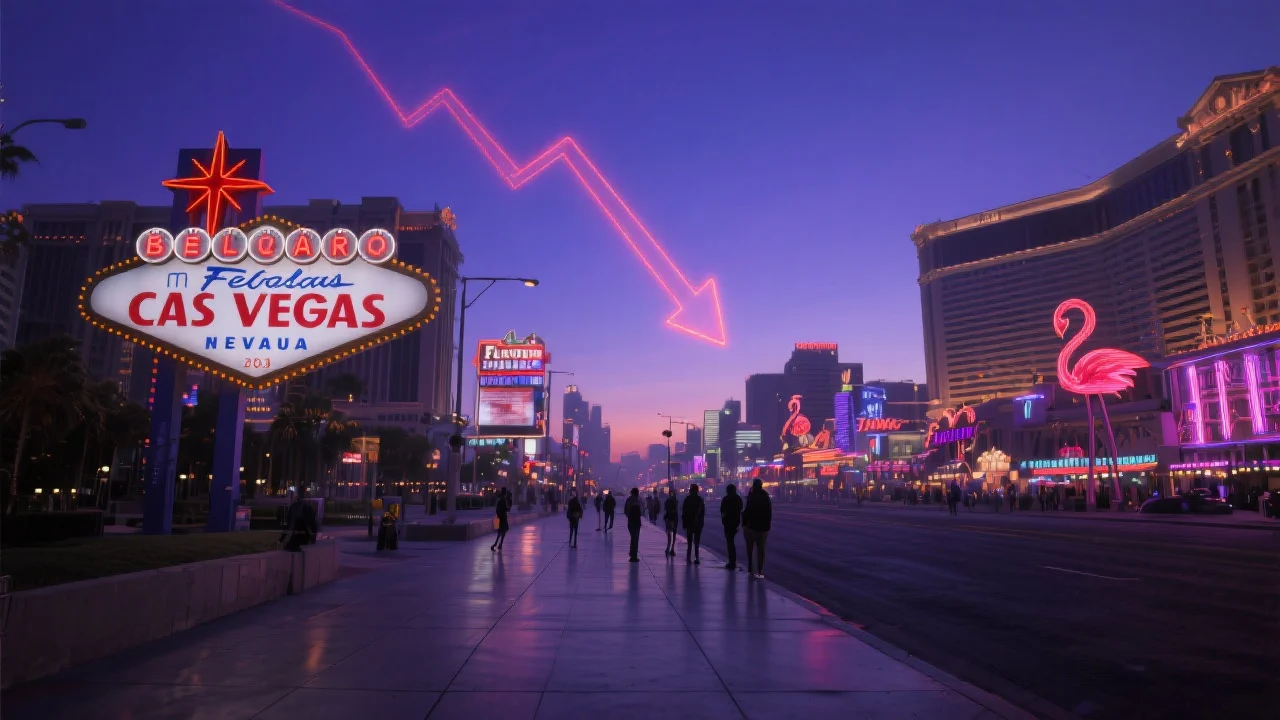
A City Built on Visitors, Now Searching for Them
Las Vegas, a city that has always thrived on spectacle and crowds, is suddenly finding itself with too many empty hotel rooms and not enough visitors to fill them.
The numbers are stark: hotel occupancy in June dropped nearly 15 percent year over year, and by early July, the city was posting the steepest declines among the top 25 U.S. tourism markets. Revenue per available room plummeted almost 29 percent, dragging down national hotel metrics in the process. For a city that’s made its name on being recession proof, these are not just bad numbers; they’re a wake up call.
The Anatomy of a Decline: More Than Just the Heat
It’s tempting to blame the summer heat or the natural ebb and flow of travel seasons, but the roots of this downturn run deeper. The Las Vegas Convention and Visitors Authority (LVCVA) reported a 6.5 percent drop in visitor volume in May, marking the fifth consecutive month of year over year declines. That’s not a blip; it’s a trend.
Economists and industry insiders point to a perfect storm: economic uncertainty, a dip in consumer confidence, and a sharp drop in international visitors, especially from Canada. The Conference Board’s Consumer Confidence Index fell to levels not seen since the early pandemic, and consumer spending on hotels, restaurants, and bars has dipped as Americans tighten their belts.
Stephen Miller, director of research at UNLV’s Center for Business and Economic Research, summed it up: “The level of uncertainty is dramatically higher today than it was six months ago.” People are thinking twice before booking that Vegas getaway, and when they do, they’re looking for value that’s harder to find as resort fees and food prices climb.
The Canadian Exodus: A Case Study in Lost Loyalty
If you want to understand the human side of this downturn, talk to the Canadians. For years, they’ve been a reliable source of visitors, drawn by direct flights and the promise of a quick, glitzy escape. But in 2025, Canadian visitor numbers have plummeted, down nearly 15 percent, with some airlines reporting drops of over 50 percent in Vegas bound passengers.
The reasons are as much political as economic. Many Canadians cite frustration with U.S. trade policies and rhetoric, choosing instead to spend their travel dollars at home or in friendlier destinations. One Calgary couple, who used to visit Vegas up to eight times a year, now say they’re “doing the patriotic thing” and exploring their own country. Another longtime visitor described his last trip as a bittersweet farewell, unsure if he’ll ever return.
Small Businesses, Big Pain
The impact isn’t just felt on the Strip. Small businesses that depend on international tourists—bike tour operators, outdoor adventure guides, boutique shops—are feeling the pinch. Jared Fisher, owner of Escape Adventures, says many of his Canadian clients have simply stopped coming. “That’s a hit to Las Vegas, because that’s maybe less tours for my guides. So that’s less money, less tip money, less hours for them,” he explains.
Mandi Elliott of the Nevada Outdoor Business Coalition puts it bluntly: “Small businesses are at the mercy of the tourism patterns. When tourism suffers, our outdoor industry suffers.” For many, there’s little they can do but hope for a turnaround and rely on state agencies to ramp up international marketing.
The Casino Conundrum: When the House Doesn’t Always Win
The gaming industry, the city’s economic engine, is also feeling the strain. Statewide gaming revenue fell by over 2 percent year over year, and the Strip itself saw even steeper declines. Meanwhile, airport passenger numbers have dropped for four straight months, a clear sign that fewer people are making the pilgrimage to Sin City.
Yet, not all is doom and gloom. Convention attendance is up, buoyed by a handful of major events, and forward bookings for fall and winter look promising. Industry leaders are betting big on a rebound, with the LVCVA boosting its marketing budget by 30 percent, the largest increase in its history. Resorts are rolling out aggressive deals, slashing resort fees, and offering credits to lure back both locals and out of towners.
The Road Ahead: Betting on a Comeback
Las Vegas has always been a city that reinvents itself in the face of adversity. The optimism among insiders is palpable, if cautious. The city’s meetings and trade show calendar is packed for the next year, and there’s hope that pent up demand will eventually bring back the crowds.
But for now, the Strip’s neon lights shine a little less brightly, and the city’s famed energy feels just a bit subdued. The question isn’t whether Las Vegas will bounce back—it always does—but how long it will take, and what the city will look like when it does.
